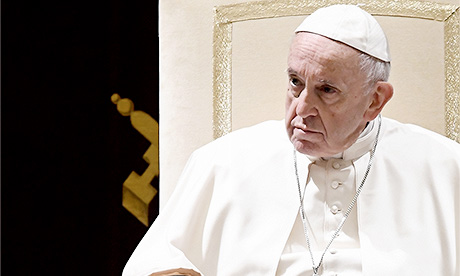Shortly before Christmas, Pope Francis declared in response to the sexual abuse crisis that “the church will spare no effort to do all that is necessary to bring to justice whosoever has committed such crimes.”
He promised that “the church will never seek to hush up or not take seriously any case.”
For decades, people have been hoping for such a statement from a pontiff, which Francis made in a public address to the Roman Curia, the offices in the Vatican that help him govern the church.
He acknowledged that it was “undeniable that some in the past, out of irresponsibility, disbelief, lack of training, inexperience…or spiritual and human myopia, treated many cases without the seriousness and promptness that was due.”
“That must never happen again,” he said.
Francis even gave “heartfelt thanks to those media professionals who were honest and objective and sought to unmask these predators and to make their victims’ voices heard.” He asked people not to be silent, but to “bring it objectively to light, since the greater scandal in this matter is that of cloaking the truth.”
To those who have abused minors, he said, “convert and hand yourself over to human justice, and prepare for divine justice.”
He then quoted the words of Christ: “Whoever causes one of these little ones who believe in me to sin, it would be better for him to have a great millstone fastened around his neck and to be drowned in the depth of the sea. Woe to the world because of scandals! For it is necessary that scandals come, but woe to the man by whom the scandal comes!” (Matthew 18:6-7).
It is highly unlikely that abusers will suddenly turn themselves over to authorities simply because the pope asked them to. As a result, the church must put in place systems for dealing with abusers and bishops who do not do everything necessary to protect children.
Since 2002, the United States has had in place good systems for dealing with abusive priests. Victims are encouraged to come forward; accusations are reported to police; lay review boards examine evidence against the accused priest; if a priest is found guilty, he can never function as a priest again.
But systems are as good as the people implementing them, which is why the laity and the media should continue to be vigilant. Because bishops did such a bad job in the past, we must modify the words of President Reagan, “Don’t trust, verify.”
There are still dioceses that screw up, and their bishops must also be held accountable. Continue reading
